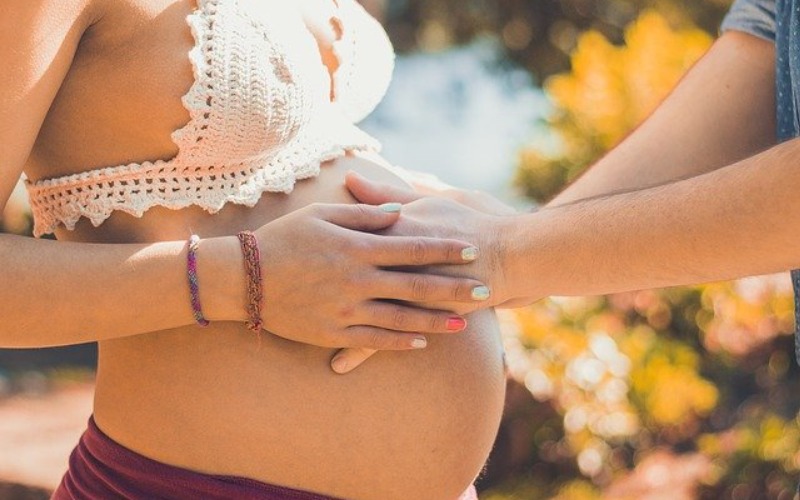It’s not something on our radar—it’s not something we usually worry about until it affects us in some way. It’s common to feel like “it won’t happen to me” or “it’s not something I have to worry about,” and then, when the unthinkable happens and we’re personally faced with it, end up feeling a little shell-shocked because we didn’t really know what to expect. We thought it would be different and didn’t realize it would be this hard.
There are a lot of misconceptions about what a miscarriage really is like. While it’s not an experience that can really be understood unless you’ve been there yourself, sharing the truth about the common misconceptions can help alleviate some of that initial shock.
From the physical side of a miscarriage to the emotional toll after, the misconceptions can leave women feeling even more isolated and alone. Talking about miscarriage can be uncomfortable—who wants to think about something so negative? But by talking about it and sharing the truth about miscarriage, we can actually help others who are or will be in a similar situation.
I had no idea what to expect during my first miscarriage, or my second. It wasn’t until I started hearing from others who had been through it that I realized what I experienced was not abnormal—that I wasn’t taking it harder than I should have, and it helped me heal.
Here are 4 misconceptions about miscarriage and the real truths:
1) Miscarriage is just a heavier period.
Contents
If you’ve had an early miscarriage, it can be described as being similar to a heavier, more painful period, but there are usually some pretty distinguishable qualities. Many women report feeling more cramping and intense pain than they would with a period, and it’s usually accompanied by large clots and contraction-like pain, as described by community members on About.com. Beyond the physical side of a miscarriage, the emotional side and grieving involved makes this misconception all the more important to dispel.
2) Miscarriage was not a real baby.
I have been told this statement before as I was grieving a loss due to miscarriage. The person that was telling me this was trying to be comforting, but was missing the whole point of my experience. A miscarriage not only represents the life and child that we will not get to know—it’s so much more. It’s about the hopes and dreams of that child’s should-have-been life.
Perinatal grief—grief due to the loss of a child from conception to one month after birth—has been observed and studied in order to distinguish the differences between depression and grief. A study done in 2002 by researchers JB Ritsher and R. Neugebauer “evaluated the Perinatal Bereavement Grief Scale (PBGS)—the first scale designed to measure grief following reproductive loss in terms of yearning for the lost pregnancy and lost baby.” The study compared “measures of attachment and investment in the child and divergent validity against measures of social desirability and depressive symptoms.” Not that we should need a study to evaluate the true grief many feel after a miscarriage, but it does help to show that the feelings that are present afterwards certainly prove that a miscarriage was a “real baby,” worthy of a grieving process.
3) Miscarriage is not common.
We don’t want to think about miscarriage because it’s not a nice topic, but it’s not terribly uncommon either. Statistics from March of Dimes say that in women who know they are pregnant, 10-15 percent have pregnancies that end early due to miscarriage. If you ask around, you are likely to find at least one woman who has had at one in her lifetime. It seems far less common because no one really talks about it.
4) Miscarriage was a result of something you did.
In the majority of all cases, miscarriages were not a result of something the mother did or didn’t do. Unfortunately, it just happens. While there are a variety of reasons for a miscarriage, it’s not typically something that can be prevented or avoided. A survey done by Dr. S. Zev Williams, an OB-GYN at Albert Einstein College of Medicine and Montefiore Medical Center in New York, found that there were widely-held misconceptions about what causes a miscarriage. The leading cause of miscarriage is a chromosomal abnormality, but the survey respondents were under other impressions due to prevalent misconceptions.
According to survey results, “76 percent listed a stressful event as a common cause, 74 percent cited longstanding stress, and 64 percent cited lifting a heavy object [as a cause for miscarriage]. Forty-one percent said they believed miscarriages may be due to sexually transmitted diseases, 31 percent cited previous abortions, and 28 percent cited implanted long-term forms of birth control.” Helping others to understand the truth of miscarriage can alleviate some of the pain caused by these misconceptions.
What misconceptions have you heard about miscarriage? Share in the comments


